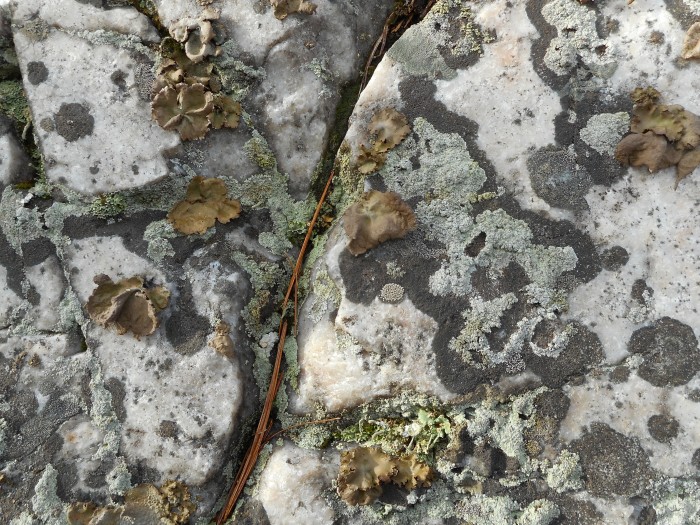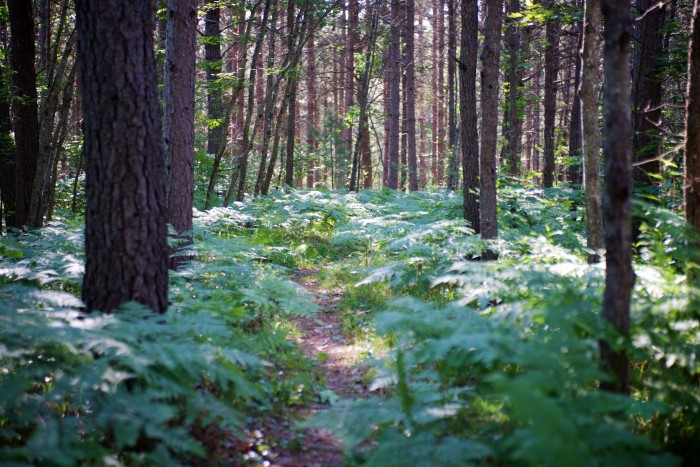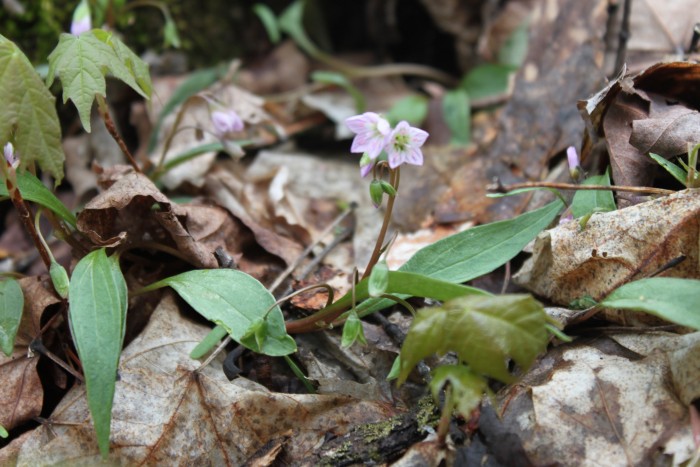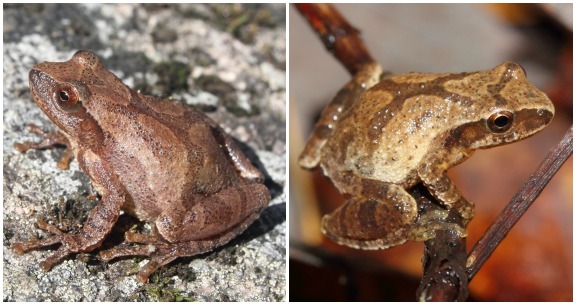Our parks are wearing the green this St. Patrick’s Day and you don’t have to be Irish to appreciate it!
“You do need to be observant, though,” says Algonquin Provincial Park biologist Alison Lake. “But it will be well worth the effort.”
Taking St. Patrick’s Day stroll? Here are 7 shades of green you might spot in our parks:
Lichens

You can find lichens almost everywhere and in every season. Most of the time you barely notice them they blend in so well. But on a rainy day in March — thanks to the moisture — tree trunks literally glow with lichens. For fun on dry days, try spritzing them with water and watch them change colour.
Evergreen ferns

Even if there’s still snow on the ground, you can often spot green leaves peeking through. If the leaflets are a shiny green and shaped a bit like boots, you’ve found a Christmas fern. If the leaves are summer green, lacy and delicate looking, you’re likely looking at a wood fern.
Flowers

Spring beauties (above) and round-lobed hepaticas emerge very early in the spring before the trees start getting their leaves. They’ve got just six weeks to pop up, grow, flower, be pollinated and seed!
The spring beauty is distinguished by its star-shaped pink flower. The round-lobed hepatica — or Anenome americana — is easily identified by its clover-shaped leaf and purple flower. When they blossom in large swaths, both species are simply stunning.
Wintergreen shrubs
You’ll find these tiny shrubs everywhere in the forest forest floor. They’re 5 cms tall, with shiny green leaves and scarlet berries. Rub the leaves to release the smell of wintergreen.
Frogs

A real harbinger of spring, by mid-March in the southern part of the province you can start to hear both the wood frog and the spring peeper. These mostly solitary amphibians have emerged from hibernation and the males are calling out to attract a female and mate.
Here’s what a chorus of spring peepers sounds like.
Fish
The bowfin — an odd looking fish, named for the long curved fin on its back — starts to appear in southern Ontario rivers as early as mid-March – long before we get to go swimming! The bowfin’s back- and tail-fins are dark green – and the lower fins are a brilliant turquoise-green.
Waterfowl
Green-winged teals are small and fast with a distinctive green “eye patch” that extends to the nape of the neck. The male has a clear whistling call that sounds distinctly un-duck like.
There’s a lot more happening than you might think this time of year in our parks!
And, as Alison points out, it’s possibly the best time to visit. It’s lovely and quiet, and there are no bugs.
Plus, she swears that if you’re really patient, you can actually hear the plants growing as they push up through last year’s leaves on the forest floor!
